
Surat Thani: Gateway to Southern Thailand's Wonders
Surat Thani, often referred to as the 'City of Good People,' is a vibrant and bustling city situated in the southern part of Thailand. It serves as a major transport hub for travelers heading to the famed islands of Koh Samui, Koh Phangan, and Koh Tao. Despite being a transit point, Surat Thani has its own unique charm and offers an authentic taste of local Thai culture. The city boasts a rich history that dates back to the Srivijaya Empire, and you can see remnants of this fascinating past in its temples and ancient ruins. The Surat Thani Night Market is a must-visit, where you can indulge in a plethora of street food delights, from spicy curries to sweet desserts. The market is also a great place to shop for local handicrafts and souvenirs. Nature enthusiasts will find Surat Thani's natural reserves and parks captivating. Khao Sok National Park, with its lush rainforests, limestone mountains, and stunning lakes, is just a short drive away. Don't miss the opportunity to take a boat tour on Cheow Lan Lake, where you can marvel at the emerald waters and spot exotic wildlife. Surat Thani also offers river cruises along the Tapi River, providing a serene escape from the bustling city life.
Local tips in Surat Thani
- Visit the Surat Thani Night Market for authentic street food and local crafts.
- Take a boat tour on Cheow Lan Lake in Khao Sok National Park for breathtaking views.
- Use Surat Thani as a base to reach the islands of Koh Samui, Koh Phangan, and Koh Tao.
- Explore the city's temples and ruins to get a glimpse of its historical significance.
- Consider a river cruise along the Tapi River for a peaceful and scenic experience.
Surat Thani: Gateway to Southern Thailand's Wonders
Surat Thani, often referred to as the 'City of Good People,' is a vibrant and bustling city situated in the southern part of Thailand. It serves as a major transport hub for travelers heading to the famed islands of Koh Samui, Koh Phangan, and Koh Tao. Despite being a transit point, Surat Thani has its own unique charm and offers an authentic taste of local Thai culture. The city boasts a rich history that dates back to the Srivijaya Empire, and you can see remnants of this fascinating past in its temples and ancient ruins. The Surat Thani Night Market is a must-visit, where you can indulge in a plethora of street food delights, from spicy curries to sweet desserts. The market is also a great place to shop for local handicrafts and souvenirs. Nature enthusiasts will find Surat Thani's natural reserves and parks captivating. Khao Sok National Park, with its lush rainforests, limestone mountains, and stunning lakes, is just a short drive away. Don't miss the opportunity to take a boat tour on Cheow Lan Lake, where you can marvel at the emerald waters and spot exotic wildlife. Surat Thani also offers river cruises along the Tapi River, providing a serene escape from the bustling city life.
When is the best time to go to Surat Thani?
Iconic landmarks you can’t miss
Ko Lamphu Park
Explore Ko Lamphu Park in Surat Thani, a serene escape with lush landscapes, tranquil lakes, and a perfect spot for relaxation and outdoor activities.
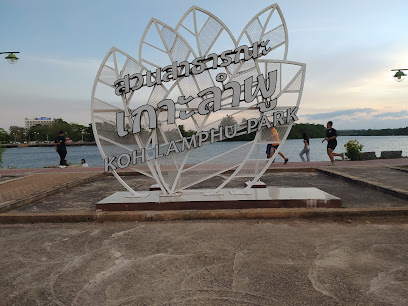
Klong Namsai
Explore the natural beauty and cultural treasures of Klong Namsai, a serene tourist attraction in Surat Thani, Thailand, perfect for relaxation and adventure.
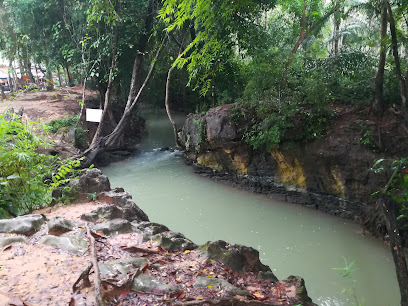
Surat Thani City Pillar Shrine
Experience the tranquil beauty and cultural richness of Surat Thani City Pillar Shrine, a must-see landmark for every traveler.
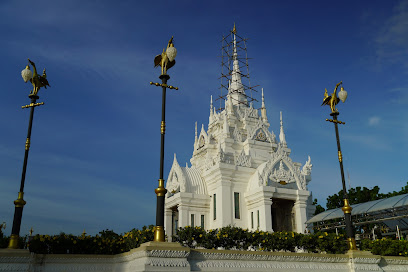
Surat Thani International Airport
Experience southern Thailand's charm through Surat Thani International Airport, your gateway to stunning beaches and lush landscapes.
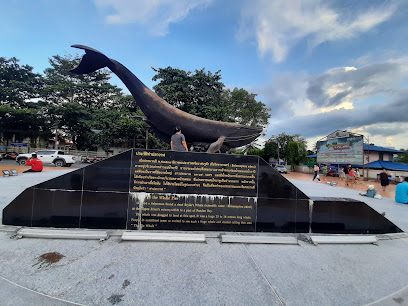
Pracha Rat Floating Market, Bang Bai Mai
Explore the vibrant Pracha Rat Floating Market in Surat Thani, where authentic Thai food and local crafts come to life on scenic waterways.
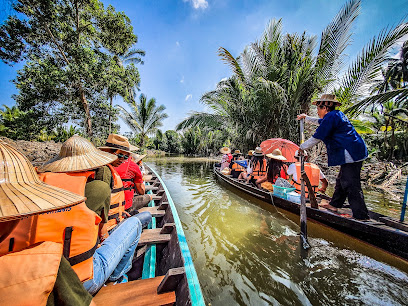
HOP INN Surat Thani
Experience comfort and convenience at Hop Inn Surat Thani, your ideal base for exploring the beauty of Surat Thani and beyond.
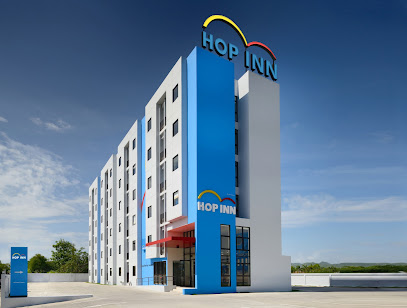
Cbd2 Hotel Surat Thani
Discover the perfect blend of comfort and convenience at Cbd2 Hotel Surat Thani, your ideal accommodation in the heart of Thailand.

K Park Grand Hotel Suratthani
Discover comfort and convenience at K Park Grand Hotel, your ideal base for exploring Surat Thani and the stunning islands of Southern Thailand.
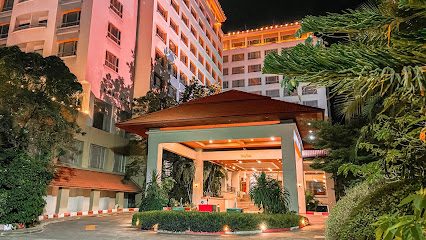
Sum Gradang Nga
Experience the rich flavors of Surat Thani at Sum Gradang Nga, where every meal is a celebration of Thai cuisine and local culture.
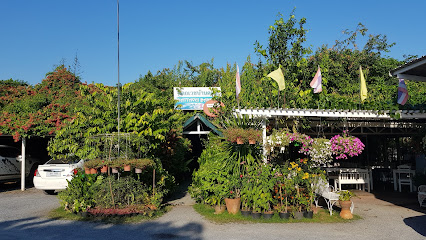
Saphan Narit
Experience the serene beauty and vibrant culture at Saphan Narit, a captivating riverfront destination in Surat Thani, Thailand.
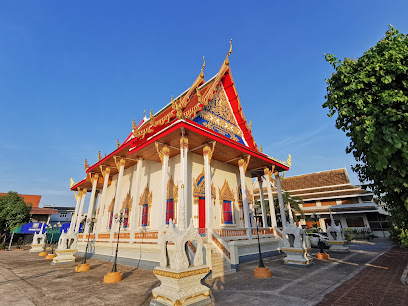
S Tara Grand
Experience comfort and culture at S Tara Grand, your perfect getaway in Surat Thani, Thailand, close to local attractions and authentic cuisine.
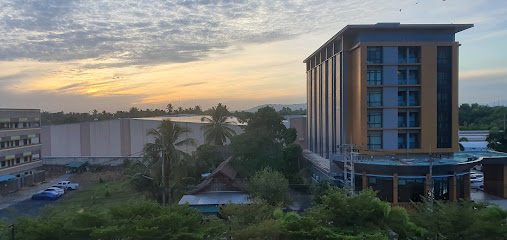
Blu Monkey Hub & Hotel Suratthani
Experience modern comfort and local charm at Blu Monkey Hub & Hotel Suratthani, your ideal base for exploring Thailand's stunning southern region.
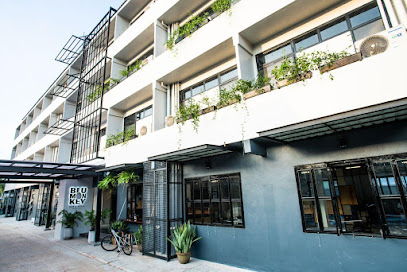
Lomprayah Tapi Pier
Experience seamless travel to Thailand's stunning islands with Lomprayah Tapi Pier, your gateway to adventure and relaxation in paradise.
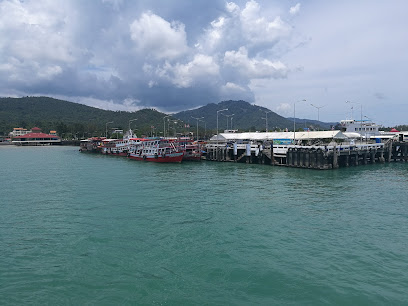
Surat Thani Rama 9 Public Park
Explore the lush greenery and serene lakes of Surat Thani Rama 9 Public Park, a city oasis perfect for relaxation and recreation.
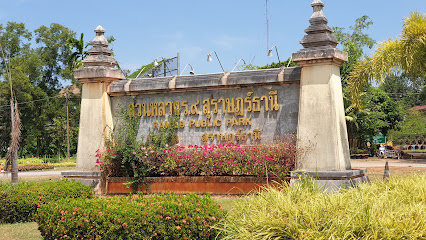
Phra That Si Surat
Discover the tranquility and architectural beauty of Phra That Si Surat, a premier Buddhist temple in Surat Thani, Thailand, perfect for spiritual seekers and culture enthusiasts.
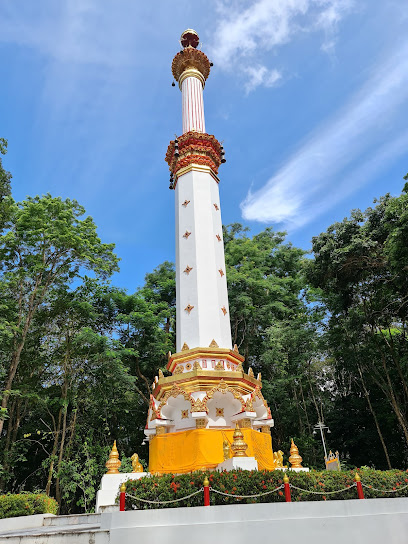
Unmissable attractions to see
Ko Lamphu Park
Explore the serene landscapes of Ko Lamphu Park, a tranquil escape in Surat Thani, perfect for nature lovers and relaxation seekers.
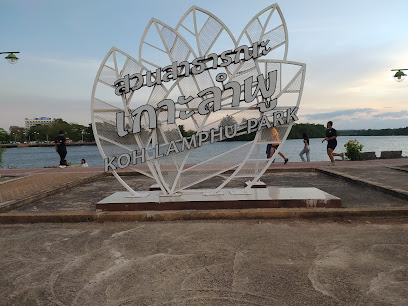
Klong Namsai
Experience the tranquil beauty and vibrant culture at Klong Namsai, a must-visit tourist attraction in Surat Thani, Thailand.
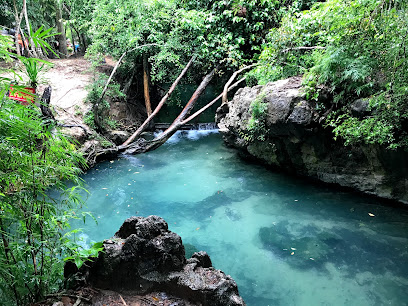
Laem Pho
Explore Laem Pho, a breathtaking state park in Surat Thani, Thailand, where nature, adventure, and tranquility await every traveler.
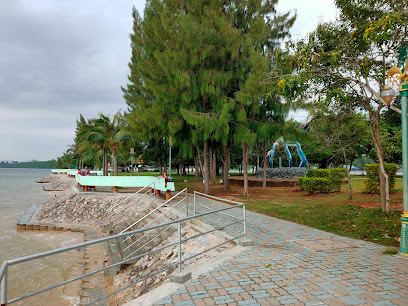
Khun Thale Swamp
Experience the serene beauty of Khun Thale Swamp, a picturesque park in Surat Thani, Thailand, perfect for nature lovers and peaceful escapes.
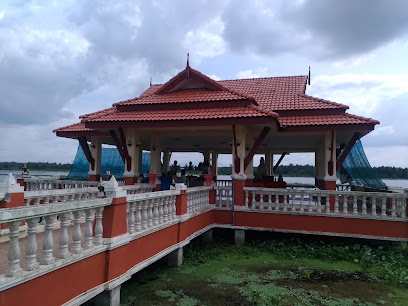
Tha Sathon Hot Spring
Discover serenity at Tha Sathon Hot Spring, a natural retreat in Surat Thani, where rejuvenation meets the beauty of Thailand's nature.
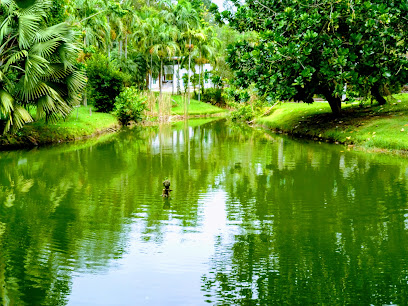
Saphan Narit
Discover the enchanting Saphan Narit in Surat Thani, a scenic bridge offering stunning views, local culture, and delicious Thai cuisine.
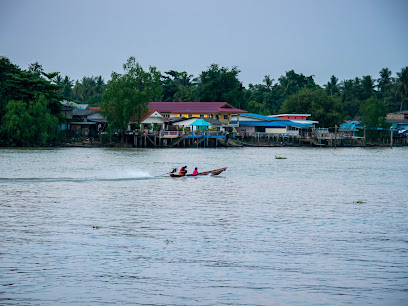
Surat Thani Rama 9 Public Park
Explore the tranquility of Rama 9 Public Park, a stunning city oasis in Surat Thani perfect for relaxation and cultural immersion.
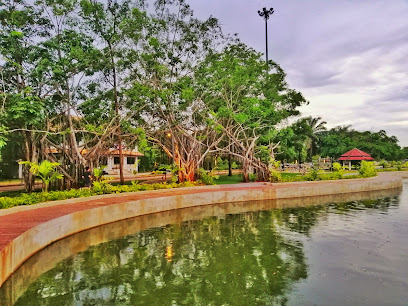
Ban Don Floating Market
Experience the vibrant culture and delicious flavors at Ban Don Floating Market, a must-visit destination in Surat Thani, Thailand.
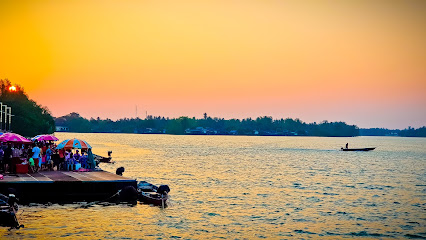
ตึกเก่า สะพานโค้ง สตรีทอาร์ท
Explore the serene beauty and rich history of Wat Phra Boromathat Chaiya, a stunning temple in Surat Thani, Thailand, perfect for spiritual seekers and history lovers alike.
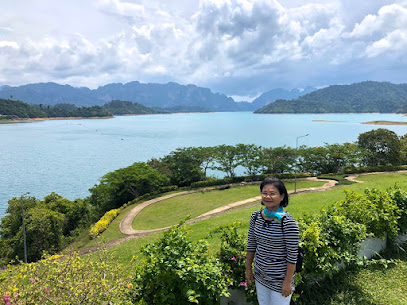
Wat Bang Bai Mai
Experience the serene beauty and spiritual heritage of Wat Bang Bai Mai, a must-visit Buddhist temple in Surat Thani, Thailand.
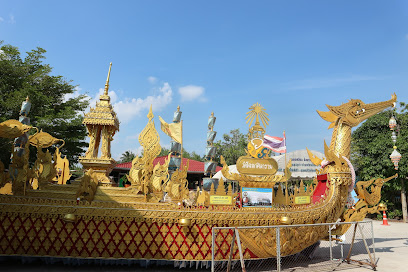
Mangrove Forest
Discover the enchanting Mangrove Forest in Surat Thani, where nature and wildlife unite in a stunning coastal ecosystem.
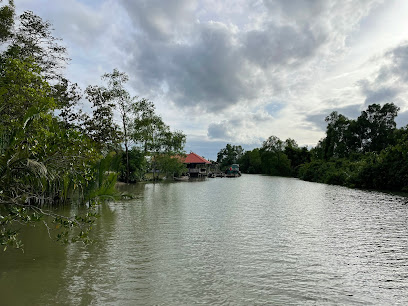
Wat Ma Pring
Discover the spiritual tranquility and stunning architecture of Wat Ma Pring, a must-visit Buddhist temple in Surat Thani, Thailand.
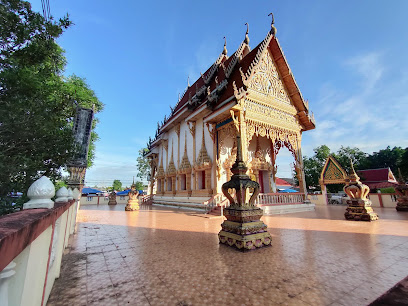
I Love Melon Farm
Experience the joy of melon farming and savor fresh flavors at I Love Melon Farm, a delightful tourist attraction in Surat Thani.
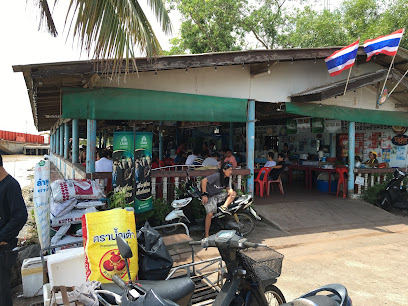
Phunphin Geological Museum
Explore the geological marvels of Thailand at Phunphin Geological Museum, a captivating attraction showcasing Earth's history through interactive exhibits.
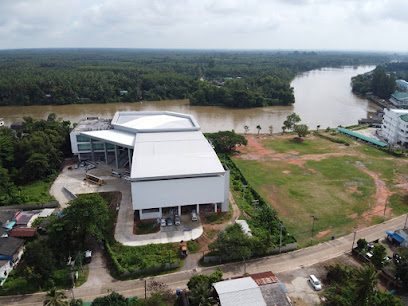
Sri Tapee Bridge
Discover the scenic beauty and cultural charm of Surat Thani at Sri Tapee Bridge, a must-visit attraction for every traveler.
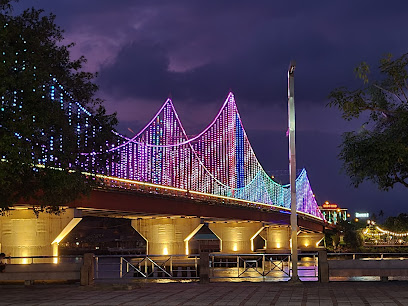
Essential places to dine
Lucky Restaurant
Experience authentic Thai flavors at Lucky Restaurant in Surat Thani - where every dish tells a story.
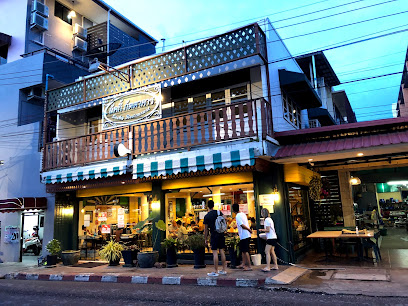
Lam Phu 2 Restaurant
Discover authentic Thai seafood at Lam Phu 2 Restaurant in Surat Thani - where freshness meets flavor in every bite.
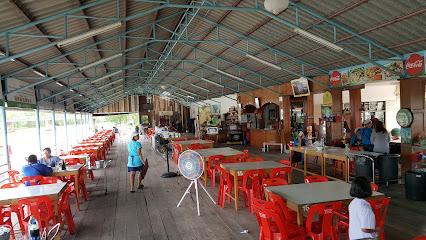
Yok Kheng
Discover authentic Thai flavors at Yok Kheng in Surat Thani - where every bowl tells a story.
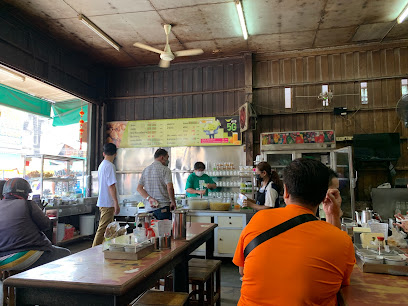
Day & Night of Suratthani
Savor authentic Thai cuisine at Day & Night in Suratthani – where every dish tells a story and every visit feels like home.
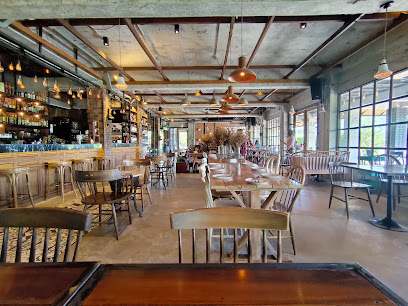
Kampan Restaurant
Discover authentic Thai flavors at Kampan Restaurant in Surat Thani - where every dish tells a story.
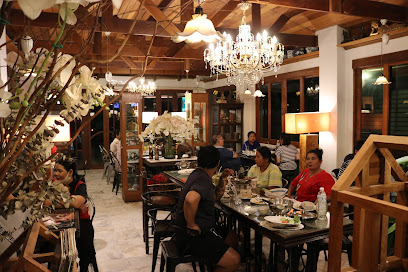
Sum Gradang Nga
Discover authentic Thai flavors at Sum Gradang Nga in Surat Thani - where every dish tells a story.
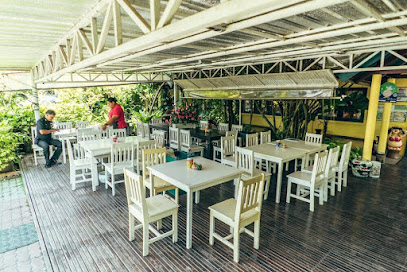
Ramen Shirokuro
Discover authentic Japanese flavors at Ramen Shirokuro in Surat Thani – where every bowl tells a story.
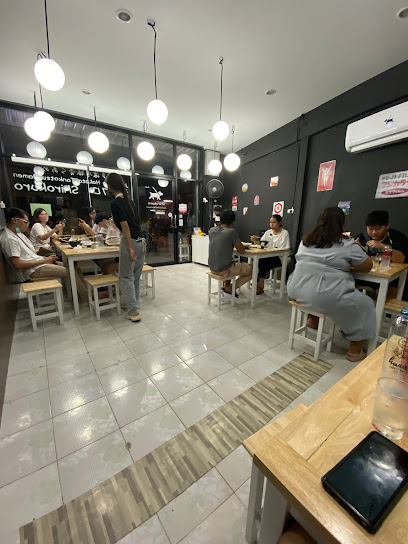
Skyhill bar restaurant and skykoff
Discover authentic Thai flavors at Skyhill Bar Restaurant in Surat Thani – where culinary excellence meets breathtaking views.
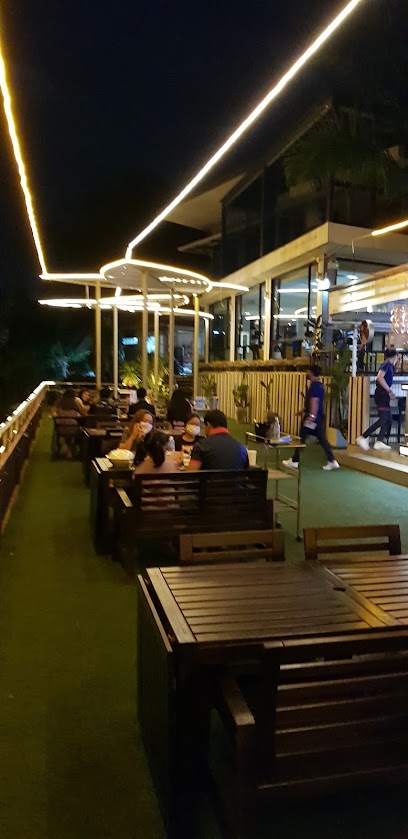
The Riverside Restaurant
Experience authentic Thai cuisine with stunning riverside views at The Riverside Restaurant in Surat Thani.
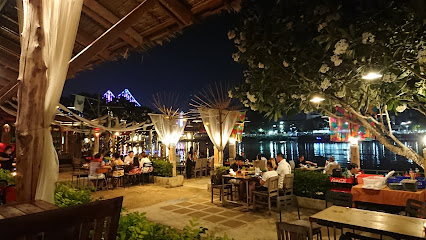
สมใจ Som-Jai Bar & Restaurant
Experience exquisite Thai cuisine and unique cocktails at Som-Jai Bar & Restaurant in Surat Thani, Thailand.
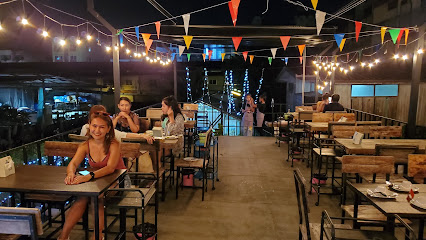
Bloom URT Suratthani
Discover the vibrant flavors and lively atmosphere at Bloom URT Suratthani - your go-to restaurant and pub experience in Thailand.
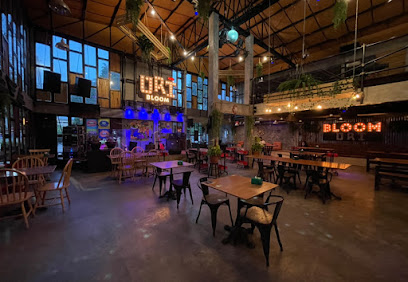
Rabiang Mai Restaurant
Discover authentic Thai flavors at Rabiang Mai Restaurant in Surat Thani – where every dish tells a story.
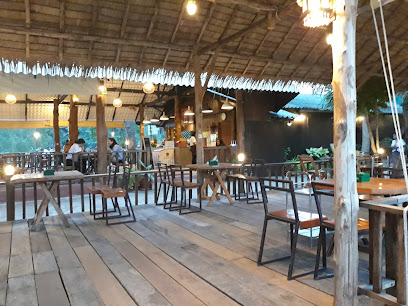
ซารัง Sarang Korean Grill
Discover the vibrant flavors of Korea at Sarang Korean Grill in Surat Thani - a culinary journey not to be missed.
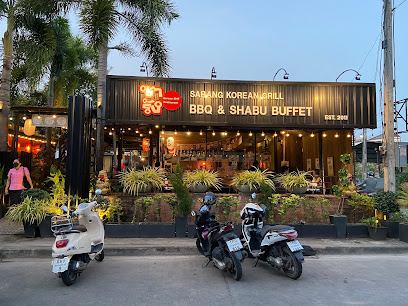
Bismillah Restaurant
Experience the rich flavors of Halal cuisine at Bismillah Restaurant in Surat Thani – an inviting brunch destination for all food lovers.
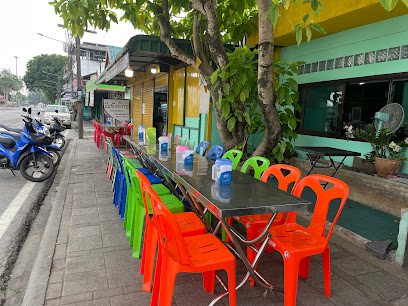
Sweet Kitchen
Experience authentic Thai flavors at Sweet Kitchen in Surat Thani - a culinary gem with warm hospitality and delicious dishes.
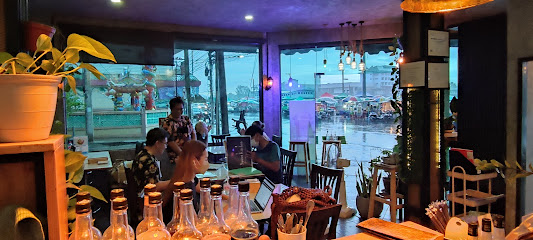
Markets, malls and hidden boutiques
Big C Supercenter Surat Thani
Experience the vibrant shopping atmosphere at Big C Supercenter Surat Thani – where local culture meets convenience.
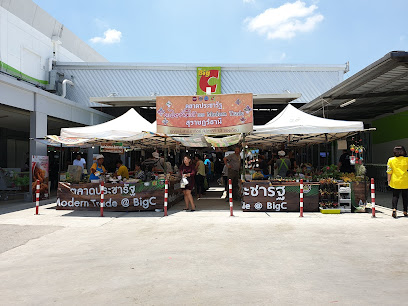
Central Surat Thani
Experience the vibrant shopping scene and rich culture at Central Surat Thani, where modern retail meets traditional Thai charm.
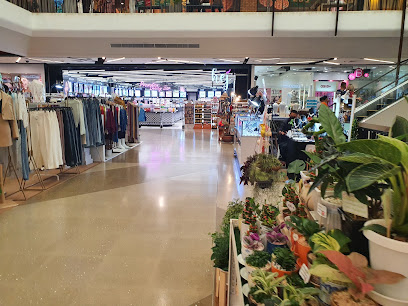
Lotus's Suratthani
Discover the vibrant shopping experience at Lotus's Suratthani, where local flavors meet global products in a lively hypermarket setting.
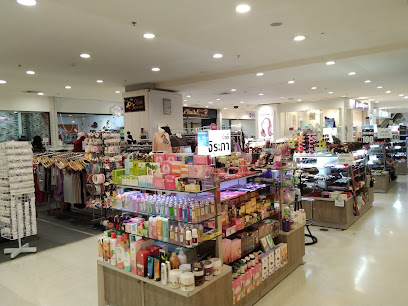
Sahathai Garden Plaza Surat Thani
Experience the vibrant shopping atmosphere at Sahathai Garden Plaza, Surat Thani's top destination for shopping, dining, and local culture.
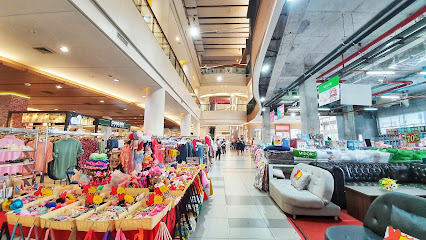
Coliseum Surat Thani
Discover a shopping paradise at Coliseum Surat Thani, where modern retail meets authentic Thai culture and delicious cuisine.
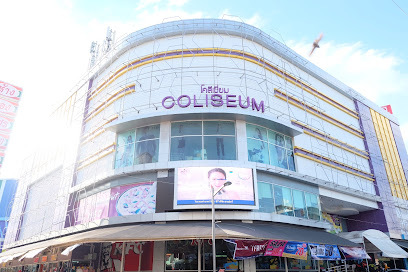
Robinson Suratthani
Discover the best of shopping in Surat Thani at Robinson, where fashion, electronics, and local flair come together in a vibrant department store experience.
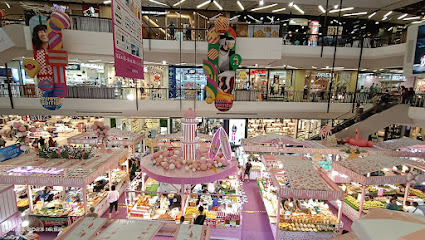
MR.DIY สาขาRich Market สุราษฎร์ธานี
Discover MR.DIY in Surat Thani - your ultimate destination for home improvement supplies and unique souvenirs to enhance your living space.
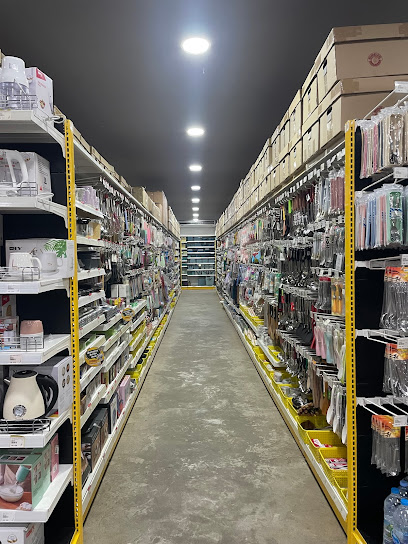
สิริสินกรุ๊ป
Discover the best in technology at Sirisingroup Electronics Store, Surat Thani - your gateway to the latest gadgets and local culture.
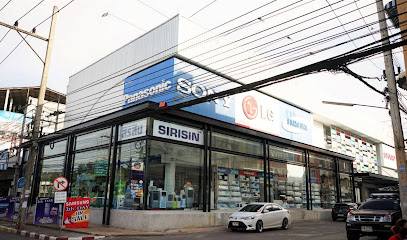
กาญจน์สโตร์ อาณาจักรสินค้ามือสอง Kan Store Suratthani
Discover unique second-hand treasures at Kan Store Suratthani, where sustainable shopping meets the charm of local culture.
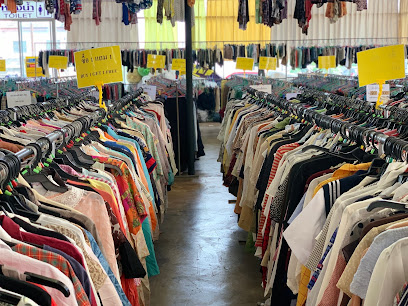
Reanchai Premium
Savor the essence of Thai culinary traditions at Reanchai Premium, Surat Thani's delightful restaurant and coffee shop.
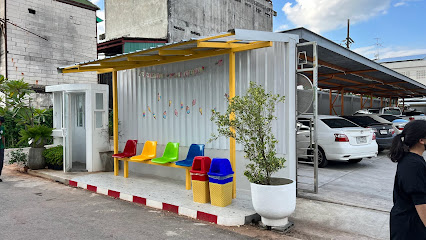
The Smokers' Library since 2022 (Cannabis Dispensary)
Discover the essence of cannabis culture at The Smokers' Library, Surat Thani's premier cannabis dispensary with quality products and friendly service.
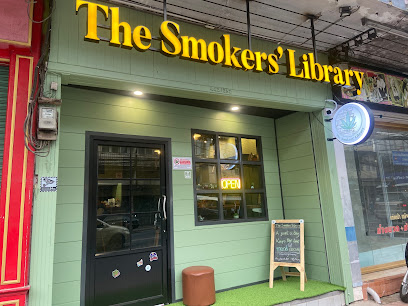
Index Living Mall Surat Thani
Explore Index Living Mall Surat Thani for exquisite Thai furniture and home decor, blending traditional craftsmanship with modern design.
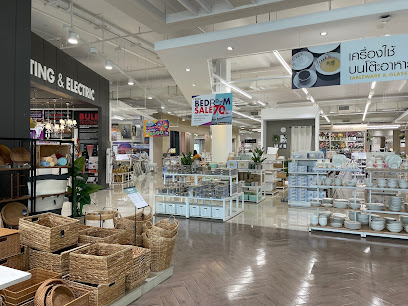
Ba-Lu Home Cannabis Shop
Explore the vibrant cannabis culture at Ba-Lu Home Cannabis Shop, Surat Thani's premier destination for quality cannabis products.
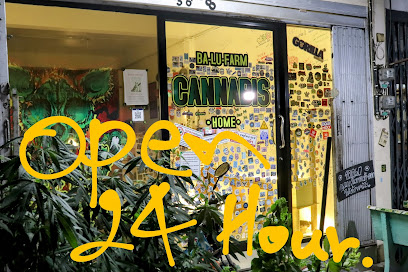
UNIQLO Central Suratthani
Discover the perfect balance of style and comfort at UNIQLO Central Suratthani, your go-to destination for quality clothing in Thailand.
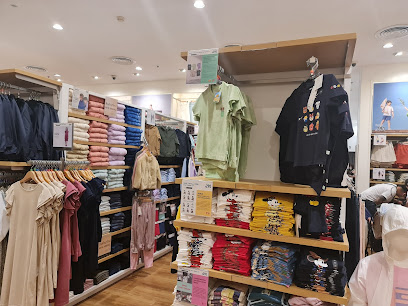
Tropical Cannabis Culture & Bar [ Royal Highness Farm Weed Store ]
Discover the vibrant tropical cannabis culture at Royal Highness Farm Weed Store, where relaxation meets spirited nightlife in Surat Thani.
![Tropical Cannabis Culture & Bar [ Royal Highness Farm Weed Store ]](https://evendo-location-media.s3.amazonaws.com/ShoppingImages/235ccfd5-73f6-4bd0-9775-a6e18aca71c0)
Essential bars & hidden hideouts
The Botanist House
Discover The Botanist House, where innovative cocktails meet cozy café vibes in the heart of Surat Thani, Thailand.
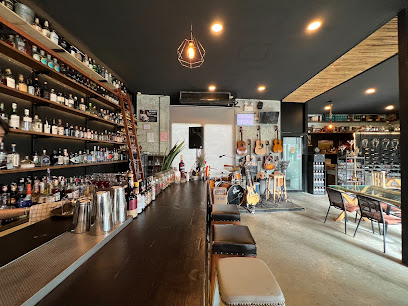
Chom Bar & Bistro
Experience the vibrant nightlife of Surat Thani at Chom Bar & Bistro, where great drinks and good music create unforgettable memories.
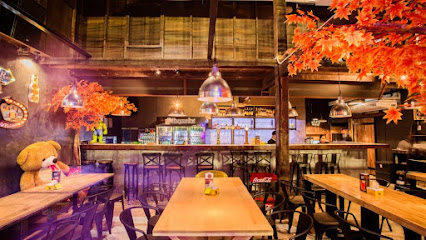
The plean
Experience the vibrant music scene at The Plean, a live music bar in Surat Thani, where local talent brings unforgettable nights alive.
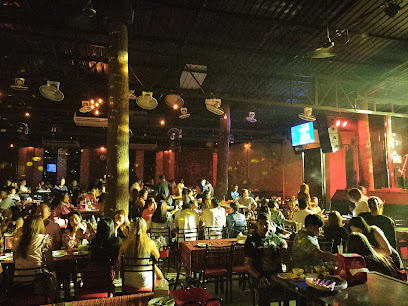
Not Teen Anymore
Discover a vibrant nightlife at Not Teen Anymore, Surat Thani's premier cocktail bar and beer haven, where every sip tells a story.
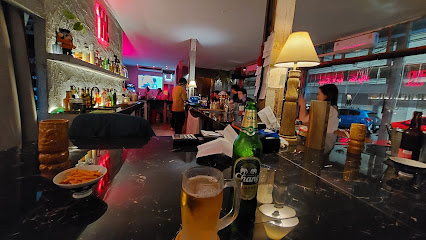
NICE Bar
Experience the vibrant nightlife at NICE Bar in Surat Thani, where refreshing drinks and a lively atmosphere await travelers.
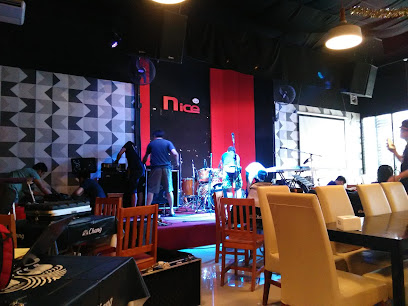
MA CRAFT cafe’ and neon bars Suratthani
Experience the vibrant nightlife of Surat Thani at MA CRAFT Cafe, where delicious food and crafted drinks meet a neon-lit ambiance.
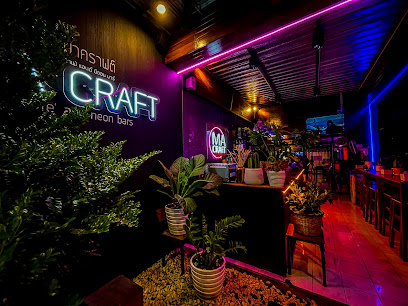
HighSiam by Badtayak (บาดทะยัก) Best Cannabis dispensary/Weed Shop In Surat Thani
Experience the fusion of cannabis culture, board games, and delicious dining at HighSiam in Surat Thani, Thailand.
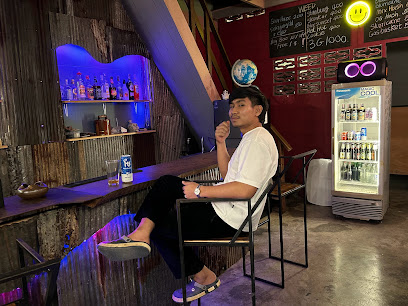
15 Bar & Bistro
Discover the vibrant atmosphere and exquisite flavors at 15 Bar & Bistro in Surat Thani, where every meal is a culinary adventure.
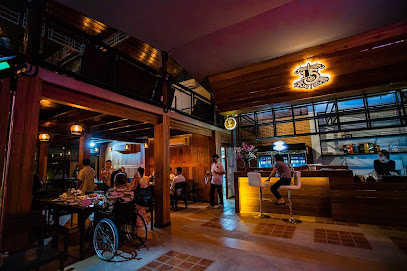
บุษบาร์ Bar & Bistro
Discover the vibrant nightlife of Surat Thani at บุษบาร์ Bar & Bistro, where refreshing drinks and a lively atmosphere await.
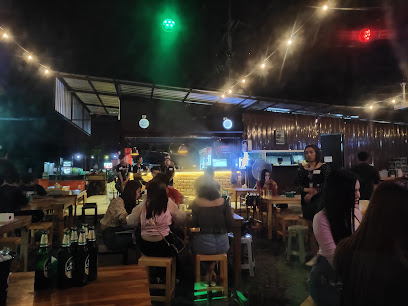
Fergie Football Bar
Fergie Football Bar in Surat Thani: A vibrant hub for sports fans, offering great drinks and a lively atmosphere to unwind and cheer for your team.
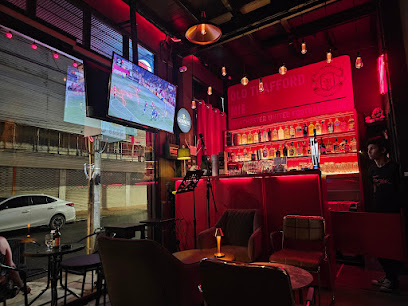
Papa House Weed & Hop Bar
Experience the vibrant atmosphere of Papa House Weed & Hop Bar in Surat Thani, where local brews and good vibes come together.
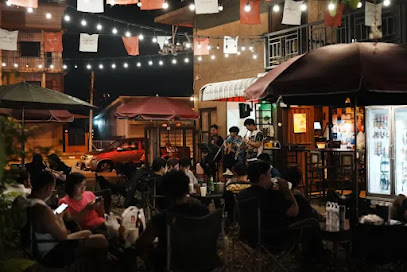
Bali Restaurant and Bar
Bali Restaurant and Bar in Surat Thani: A lively dining and entertainment experience with tropical flavors and vibrant cocktails.
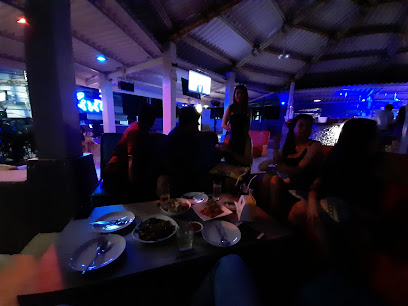
ทองหล่อ Pub & Restaurants
Discover the vibrant nightlife at Thonglor Pub & Restaurant in Surat Thani, where delicious food meets an exhilarating atmosphere.

LAB-surat thani
Discover the vibrant nightlife of Surat Thani at LAB, featuring creative cocktails and a lively atmosphere for an unforgettable evening.
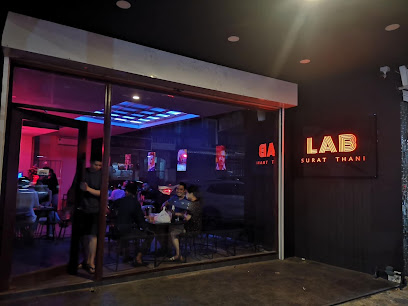
Local Phrases
-
- Helloสวัสดี
[sawasdee] - Goodbyeลาก่อน
[la kon] - Yesใช่
[chai] - Noไม่
[mai] - Please/You're welcomeโปรด/ยินดี
[proht/yin dee] - Thank youขอบคุณ
[kop khun] - Excuse me/Sorryขอโทษ
[khor toht] - How are you?สบายดีไหม?
[sabai dee mai?] - Fine. And you?สบายดีค่ะ คุณล่ะ?
[sabai dee ka kun la?] - Do you speak English?คุณพูดภาษาอังกฤษได้ไหม?
[kun poot paa saa ang grit dai mai?] - I don't understandฉันไม่เข้าใจ
[chan mai kao jai]
- Helloสวัสดี
-
- I'd like to see the menu, pleaseขอดูเมนูหน่อยค่ะ
[khor doo menu noi ka] - I don't eat meatฉันไม่กินเนื้อ
[chan mai gin neua] - Cheers!ชนเครื่องดื่ม!
[chon kreung deum] - I would like to pay, pleaseขอจ่ายเงินหน่อยค่ะ
[khor jai ngern noi ka]
- I'd like to see the menu, pleaseขอดูเมนูหน่อยค่ะ
-
- Help!ช่วยด้วย!
[chuai dua!] - Go away!ไปหายไป!
[pai hai pai!] - Call the Police!โทรตำรวจ!
[thoh tamruat!] - Call a doctor!โทรหมอ!
[thoh mor!] - I'm lostฉันหลงทาง
[chan long tang] - I'm illฉันไม่สบาย
[chan mai sabai]
- Help!ช่วยด้วย!
-
- I'd like to buy...ฉันอยากซื้อ...
[chan yak seu...] - I'm just lookingฉันแค่ดู
[chan kae doo] - How much is it?ราคาเท่าไหร่?
[ra ka thao rai?] - That's too expensiveแพงเกินไป
[paeng geun pai] - Can you lower the price?ลดราคาได้ไหม?
[lot ra ka dai mai?]
- I'd like to buy...ฉันอยากซื้อ...
-
- What time is it?ตอนนี้กี่โมงแล้ว?
[ton nee kee mong laeo?] - It's one o'clockเป็นโมง
[pen mong] - Half past (10)สามทุ่ม
[sam tum] - Morningเช้า
[chao] - Afternoonบ่าย
[bai] - Eveningเย็น
[yen] - Yesterdayเมื่อวาน
[meua waan] - Todayวันนี้
[wan nee] - Tomorrowพรุ่งนี้
[proong nee] - 1หนึ่ง
[neung] - 2สอง
[song] - 3สาม
[sam] - 4สี่
[si] - 5ห้า
[ha] - 6หก
[hok] - 7เจ็ด
[jet] - 8แปด
[paet] - 9เก้า
[gao] - 10สิบ
[sip]
- What time is it?ตอนนี้กี่โมงแล้ว?
-
- Where's a/the...?...อยู่ที่ไหน?
[...yoo tee nai?] - What's the address?ที่อยู่อย่างไร?
[tee yoo yang rai?] - Can you show me (on the map)?แสดงให้ฉันดูได้ไหม?
[sa daeng hai chan doo dai mai?] - When's the next (bus)?รถต่อไปเมื่อไหร่?
[roh tor pai meua rai?] - A ticket (to ....)ตั๋ว (ไป...)
[tua (pai...)]
- Where's a/the...?...อยู่ที่ไหน?
History of Surat Thani
-
Surat Thani, meaning 'City of Good People,' traces its origins back to the Srivijaya Empire, a powerful maritime kingdom that flourished between the 7th and 13th centuries. The region was a strategic hub for trade and Buddhism, with artifacts and temple ruins still scattered across the province. Archaeological finds at Chaiya, a district in Surat Thani, reveal remnants of ancient temples and inscriptions in the Pallava script, indicating the area's historical significance as a religious and cultural center.
-
During the height of the Srivijaya Empire, Surat Thani played a crucial role as a center for Buddhist learning and maritime trade. The empire's influence extended throughout Southeast Asia, and Surat Thani's strategic location on the Gulf of Thailand made it an important port for traders from China, India, and the Middle East. The Wat Phra Borommathat Chaiya, an ancient temple believed to date back to the Srivijaya period, stands as a testament to the region's historical significance.
-
As the Srivijaya Empire waned, Surat Thani came under the influence of the Ayutthaya Kingdom, which ruled much of Thailand from the 14th to the 18th centuries. During this period, the region remained an important trade center. After the fall of Ayutthaya in 1767, Surat Thani briefly became part of the Thonburi Kingdom under King Taksin, before eventually becoming incorporated into the Rattanakosin Kingdom under King Rama I.
-
The late 19th and early 20th centuries saw significant changes in Surat Thani, as the region began to modernize under the reign of King Chulalongkorn (Rama V). The construction of roads, railways, and the introduction of rubber plantations transformed the economy and infrastructure, integrating Surat Thani more closely with the rest of Thailand. The establishment of the Ban Don railway station in 1915 marked a turning point in the region's connectivity and development.
-
During World War II, Surat Thani experienced Japanese occupation, which left a lasting impact on the region. The Japanese used the province as a strategic base for operations in Southeast Asia. The remnants of bunkers and airstrips can still be found in certain areas, serving as a grim reminder of this tumultuous period in the province's history.
-
After World War II, Surat Thani underwent rapid development, transforming into a bustling urban center. The discovery of the natural beauty of nearby islands, such as Koh Samui, Koh Phangan, and Koh Tao, led to a tourism boom in the latter half of the 20th century. Surat Thani became the gateway for tourists exploring these tropical paradises, significantly boosting the local economy and transforming the cultural landscape.
-
Surat Thani is rich in cultural heritage, with numerous festivals and traditions that reflect its diverse history. The Chak Phra Festival, a Buddhist event celebrating the end of the Buddhist Lent, features vibrant parades, boat races, and cultural performances. The city is also known for its traditional shadow puppet theater, Nang Talung, and its unique southern Thai cuisine, which offers a rich tapestry of flavors influenced by the region's historical trade connections.
Surat Thani Essentials
-
Surat Thani is well-connected by air, rail, and road. Surat Thani International Airport (URT) is the main gateway for domestic and some international flights. From the airport, you can take a taxi or a shuttle bus to the city center. For rail travel, Surat Thani Railway Station is a major stop on the Southern Line of the State Railway of Thailand, with regular services from Bangkok and other major cities. If you prefer traveling by bus, several long-distance buses run between Bangkok and Surat Thani, as well as other regional destinations.
-
Within Surat Thani, you can use various means of transportation including taxis, songthaews (shared pickup trucks), and tuk-tuks. Motorbike rentals are also popular and offer flexibility for exploring the area. For longer distances, buses and minibuses connect Surat Thani with nearby towns and tourist spots such as Koh Samui and Khao Sok National Park. Note that while public transport is affordable, it may not always adhere to a strict schedule.
-
The official currency in Thailand is the Thai Baht (THB). Credit cards are widely accepted in hotels, restaurants, and larger shops, but it's advisable to carry cash for smaller purchases and in rural areas. ATMs are plentiful in Surat Thani, and currency exchange services are available at the airport and in the city center.
-
Surat Thani is generally safe for tourists, but standard precautions should be taken. Avoid walking alone late at night in isolated areas. Be cautious with your belongings, especially in crowded places such as markets and bus stations. While there are no specific high-crime areas targeting tourists, petty theft can occur. Always keep an eye on your personal items and avoid displaying large amounts of cash.
-
In case of emergency, dial 191 for police assistance, 1669 for medical emergencies, and 199 for fire services. Surat Thani Hospital is the main medical facility in the area. It's recommended to have travel insurance that covers medical emergencies. Pharmacies are widely available for minor health issues and over-the-counter medications.
-
Fashion: Do dress modestly, especially when visiting temples and religious sites. Avoid wearing overly revealing clothing. Religion: Do show respect for local customs; remove your shoes and cover your shoulders when entering temples. Public Transport: Do be polite and offer your seat to elderly passengers. Don’t eat or drink on public transport. Greetings: Do greet people with a traditional Thai 'wai' (placing your palms together in a prayer-like gesture). Eating & Drinking: Do try local dishes and street food. Don’t waste food, as it's considered disrespectful.
-
To experience Surat Thani like a local, visit the vibrant night market where you can sample delicious street food and buy local crafts. Take a boat tour on the Tapi River for unique views of the city. Engage with locals; they are generally friendly and willing to share insights about the area. Don’t miss visiting the Wat Phra Borommathat Chaiya, an ancient temple with historical significance. For a quiet retreat, explore the lesser-known temples and natural parks around the city.
Trending Landmark in Surat Thani
-
Ko Lamphu Park
-
Klong Namsai
-
Surat Thani City Pillar Shrine
-
Surat Thani International Airport
-
Pracha Rat Floating Market, Bang Bai Mai
-
HOP INN Surat Thani
-
Cbd2 Hotel Surat Thani
-
K Park Grand Hotel Suratthani
-
Sum Gradang Nga
-
Saphan Narit
-
S Tara Grand
-
Blu Monkey Hub & Hotel Suratthani
-
Lomprayah Tapi Pier
-
Surat Thani Rama 9 Public Park
-
Phra That Si Surat
Nearby Cities to Surat Thani
-
Things To Do in Koh Samui
-
Things To Do in Nakhon Si Thammarat
-
Things To Do in Krabi
-
Things To Do in Ranong
-
Things To Do in Chumphon
-
Things To Do in Phuket
-
Things To Do in Trang
-
Things To Do in Satun
-
Things To Do in Langkawi
-
Things To Do in Hua Hin
-
Things To Do in George Town
-
Things To Do in Rayong
-
Things To Do in Penang
-
Things To Do in Pattaya
-
Things To Do in Koh Rong













